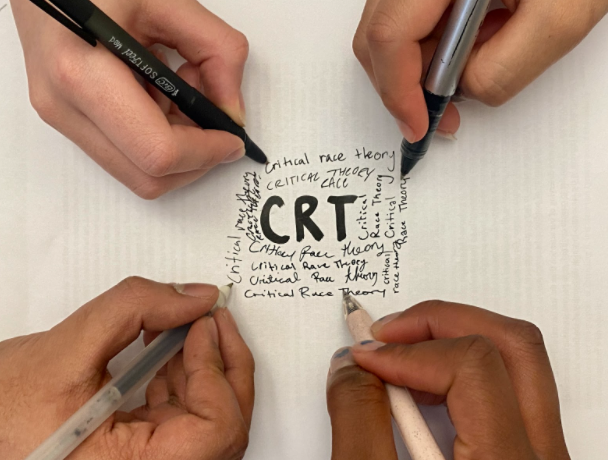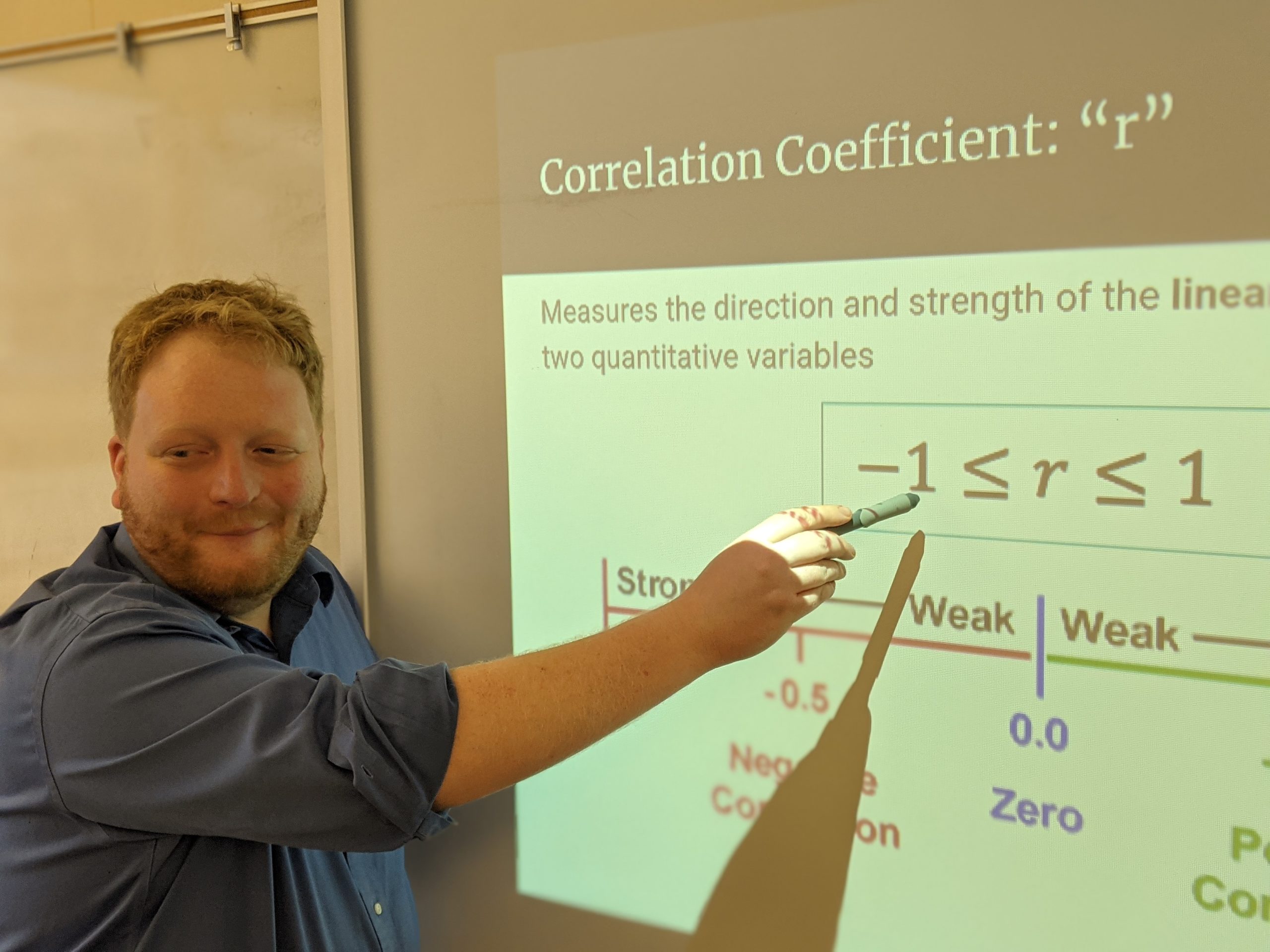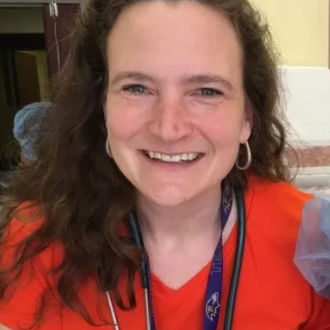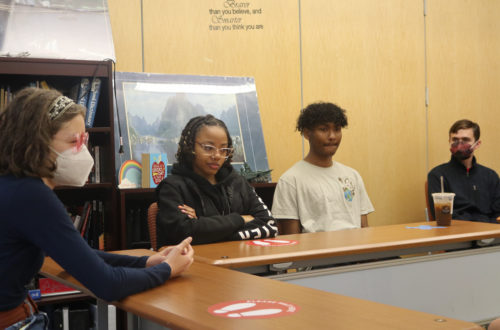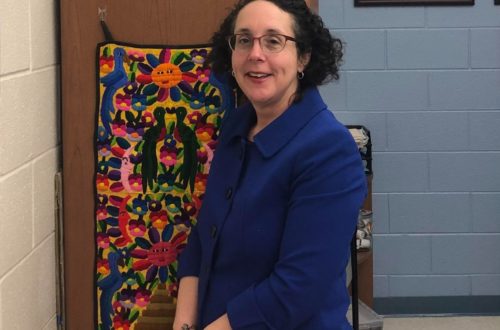ACPS students and teachers speak on the elusive concept that has dominated educational conversations across Virginia.
Yahney-Marie Sangare
Staff Writer
Critical Race Theory, frequently shortened to CRT, has been recently transformed into a rallying cry and a political death sentence; in short, it has become scholarly gunfire. In the midst of loaded statements, tumultuous think-pieces, and competing propaganda, Virginian students, parents, and citizens are left dangling between spheres of competitive influence where policy has forbidden an elusive ‘something’ that previously was rarely given name outside of higher education. The slew of misinformation that haunts its rhetoric has not been aided by recent talking points. Demystifying the surreal imagination of CRT in Virginian schools, students and teachers of ACHS speak on its impact.
Governor Youngkin’s executive order, signed on January 15, 2022, called for the review and revision of any policies that may promote ‘inherently divisive concepts’. Various Virginia house bills that include anti-CRT codes are currently pending. Among them, both HB 977 and HB 1126 forbid teaching that capitalism or the United States of America is ‘inherently racist’. SB 570 defines the ‘divisive concepts’ that CRT forbids in seven sections, supposedly to maintain the Civil Rights Act of 1964.
In Alexandria, a city that voted decisively against Glenn Youngkin, the conversation has been calmer. An article from Parents Defending Education asserted that pages entitled “Talking to your Children about Racial Justice” and “Teaching Racial Justice” are examples of critical race theory. An article for the National File called the attendance of a social justice workshop a “move to the far-left.” However, the intersection between local and statewide conversation is complex.
French teacher Anna Kobylski said, “I feel supported by Dr. Hutchings and what is articulated in our strategic plan. Where there might be dissonance is at the state level. I’m an employee of ACPS, and I feel confident that what I am doing is in line with our school division. I cannot say the same for my colleagues across Virginia…How people are feeling is dependent on their local context.”
English teacher Nikkia Camm said, “In my department, there’s no fear, concern, or conversation about [CRT] in this school. It’s not something I am concerned about regarding myself or my students.”
However, changing subject areas may be feeling the aftershock of CRT legislation differently. Ra Alim Shabazz is a history, African American Studies, and Global Majority Studies teacher. He said, “I’m getting questions centered around CRT, and as a teacher, it’s difficult to reconcile what society is saying versus what I am charged to teach.”
“It did have the effect of increasing general negative feeling about the profession we chose,” said Gabriel Elias, an International Academy history teacher, “It’s difficult, especially if you pay attention to social media, to be a consistent target of antipathy, especially when, in general, teachers here really try to present a class that encourages conversation and acknowledges biases and other points of view because it’s so diverse.”
The diversity of the student population in the suburbs of Washington, though, seems to have reached a shaky consensus. Students may have heard about CRT, but it seems distant from their educational ecosystem.
“I’ve heard many people are opposed to [CRT], usually people from the South. I heard that CRT is… teaching systemic racism and how it’s going on in our world right now, even in 2022,” said sophomore Salma El Gourchal.
“Both sides are very passionate about CRT. I think that it’s teaching about interactions between different races throughout history. If we don’t teach history, it’ll repeat itself,” said junior Jackson Snyder.
“I wouldn’t call someone who doesn’t support CRT a racist; I would say they’re supporting a racist narrative, moreso,” said senior Evan Akins.
What actually is CRT? Simply put, it is a complex academic framework applied to examine the role race plays in various fields. The NAACP defines CRT as “an academic and legal framework that denotes that systemic racism is part of American society — from education and housing to employment and healthcare.”
In history, critical race theory may consist of examining the United States through the lens of continuous cycles of imperialism and systemic oppression or focusing on the treatment of Black people in the antebellum to Reconstruction period. In economics, critical race theory might look at the underrepresentation of Black millionaires in mutual investment funds. Critical race theory also asserts the existence of systemic racism and colonization and explains the pervasiveness of white supremacy.
These concepts have been critiqued for insinuating a sense of white guilt or portraying a left-leaning bias. CRT itself, though, as a complex academic discipline, does not, and cannot, exist in public high schools, at any meaningful level.
“Clearly, CRT is not something being taught in K-12 education; it is a substantive study of the impact of race in our history; that’s a graduate-level study involving constitutional law, economics, and political science,” said Shabazz.
“I feel like how CRT is being misrepresented in the culture with people being like, ‘Oh, [CRT is] pinning the blame on white people!’ I feel like that misrepresentation is intentional. I don’t know which teachers are ‘pressing CRT’ in schools, but there’s this whole movement against it because people have misrepresented it,” said Akins, “Someone learning things that are new is uncomfortable, but we have to understand that and understand what people have done to other people.”
Speaking discussions of race in the classroom, student perspectives have mainly painted them as productive. “I have not [felt attacked]. I know other people have been, but I personally have not,” said Snyder.
“Critical race theory shouldn’t be taught in the form it’s in, but it should be taught to an extent,” said sophomore Alex Cirmo, “I’ve had hard conversations [about divisive concepts] in school, and I think the teachers have too much bias to their political sides.”
“I don’t think it’s possible to teach something without having a little bit of a bias [about it],” said sophomore Obsidian Haynesworth, “If you don’t have the ability to teach without letting your bias leak into your teaching, you should not teach.”
For other students, discussions about race in education still do not appear complex enough. El Gourchal, who is indigenous Morrocan, said, “Morocco’s really only talked about when it comes to Islam; it falls under the ‘Arab’ umbrella. Sometimes, the things that they teach us are very Arabized; it makes people think that all Morrocons are Arabs when [they’re] really not.”
Haynesworth stressed the importance of implementing aspects of CRT into classroom discussion. They said, “Racism is something that must be unlearned; CRT in schools taught by POC is important…It makes those topics more accessible to us. It makes unlearn white-washed history as well.”
Junior Andres Heunneke said, “I don’t think [capitalism and divisive topics] should be taught completely, mostly because of the backlash you’re seeing right now. I don’t think teachers should be limited because there are people who want to learn about stuff. It’s like all or nothing. There should be a center. Certain aspects of CRT should be banned, but I don’t think it should be banned completely.”
There is still tension surrounding the readiness of certain racial conversations between groups. “[White students] don’t have the proper contextual knowledge to thoroughly deconstruct racism and racial concepts,” said Akins, “Every time they [try to discuss them], the conversation never reaches the point where it really gets down to it. It’s not the fault of the other kids… they’re just not hip.”
Haynesworth has had similar experiences. They said, “In middle school, I had to deal with microaggressive comments about Black topics like slavery in history classes. History teachers somehow did not know how to deal with it so they would move on instead of shutting down the person who is being racist or microaggressive, or even enabling them through things like Socratic seminars or shutting me down instead.”
Balancing a racially conscious classroom that promotes discussion and education in this tumultuous time frame proves challenging. Racism, identity, and ‘divisive topics’ naturally originate in the grand scheme of history. Further, the bill’s origins in the Virginia school system largely originated in reactionist perspectives, may not ring true in the function of education even before its passing.
“In terms of what’s happening as a teacher, it’s not at all important,” said Elias. “There’s so much else going on. Contrary to what people outside of schools believe, it’s really hard to change your curriculum–we’re constantly in the classroom.”
“I’m a French teacher; that means I’m teaching the language and the diverse cultures of the people who speak this language, and inherently means examining the reasons that people speak French around the world. There is a colonial and imperial history behind that. On a certain level, it’s part of my curriculum in some ways, but at the same time, I see how things that I teach in class could be perceived as divisive,” said Anna Kobylski, a French teacher, “I definitely have thought to myself, ‘Oh, could this be that somebody reports to that website or sends in a message about?’ I have not felt the level of fearing for my job just yet, and I take that with a certain level of privilege I have as a white teacher.”
Shabazz reiterated that students rarely feel unsafe in the classroom. “If we’re talking about something like the Dredd Scott decision, it is what it is. In teaching the historical narrative and how that impacts social, political, and economic realities, I’m dealing with actual facts. There is very little room for people to feel uncomfortable–the students do not center themselves in these decisions because they happened before our time… When they’re looking at current events, they have to reconcile how the structures and philosophies of our government are playing into the realities of today. I lead them in that way, but I haven’t, up until this point, felt that any students felt uncomfortable about what they’re doing because they see it as an academic discipline because they realize it’s about the nation, not just them.”
The worrying part of anti-CRT legislation rests in its potential weaponization. Any conversation about race, gender, or capitalism can be interpreted as the brooding, villainous ‘CRT’. Such is the case in Tennessee, where high school teacher Matthew Hawn was fired for assigning readings about white privilege and the trial of Derek Chauvin in a Contemporary Issues class. Granted, the political climate of his mostly-white, conservative town may optically differ from Alexandria, but a vocal minority’s potential to hold onto vague legislation knits the fabric of a dangerous ideology.
“People should feel uncomfortable around horrible things; we need to reclaim the language surrounding them. Education is supposed to make everyone expand their viewpoints. The minute we begin to edit out the bad things that have happened, we ensure that we can’t learn from them,” said Shabazz, “The current move does a disservice to education in general, and doesn’t lead to critical thinkers and a democracy that is going to have to make decisions shortly because we’re talking about people that are going to be eighteen.”
“I think it’s important for students to be able to view the world in a holistic way. We do a disservice to students to ignore something as simple as race because even though there are some issues with how people view and use race, it’s important to explore how it connects to various literary and cultural ideas,” said Camm.
Critical Race Theory is the perfect scapegoat. It is becoming concerningly synonymous with any conversation surrounding or incorporating race at all, and in its mechanization for various political agendas, its true meaning is obscured. Education is the foundation of the future; how we approach it–in legislation, social media, and conversation–is essential. In Alexandria, that means being conscious of what is happening around us and its potential to affect our school system, even when it seems constrained to Southern states.

